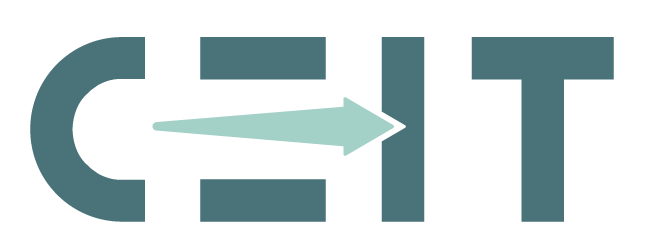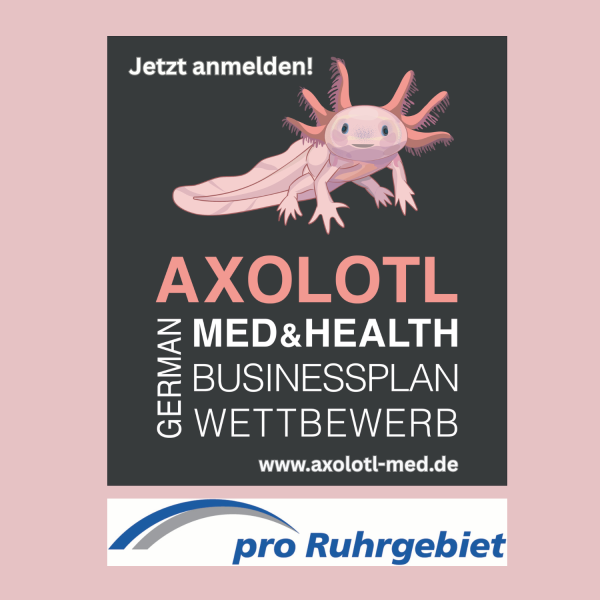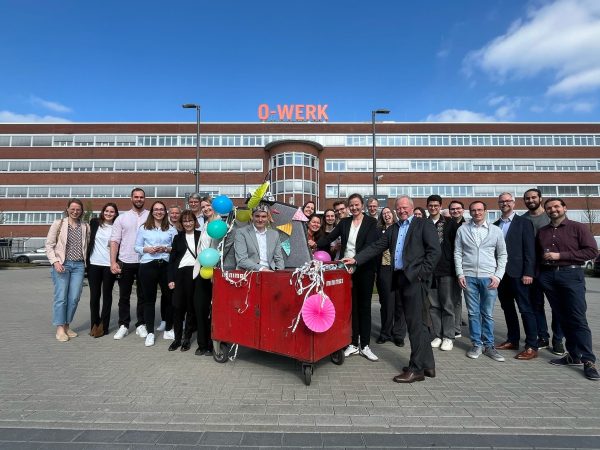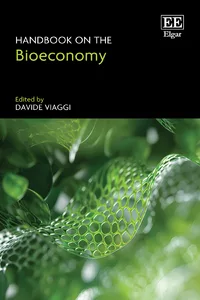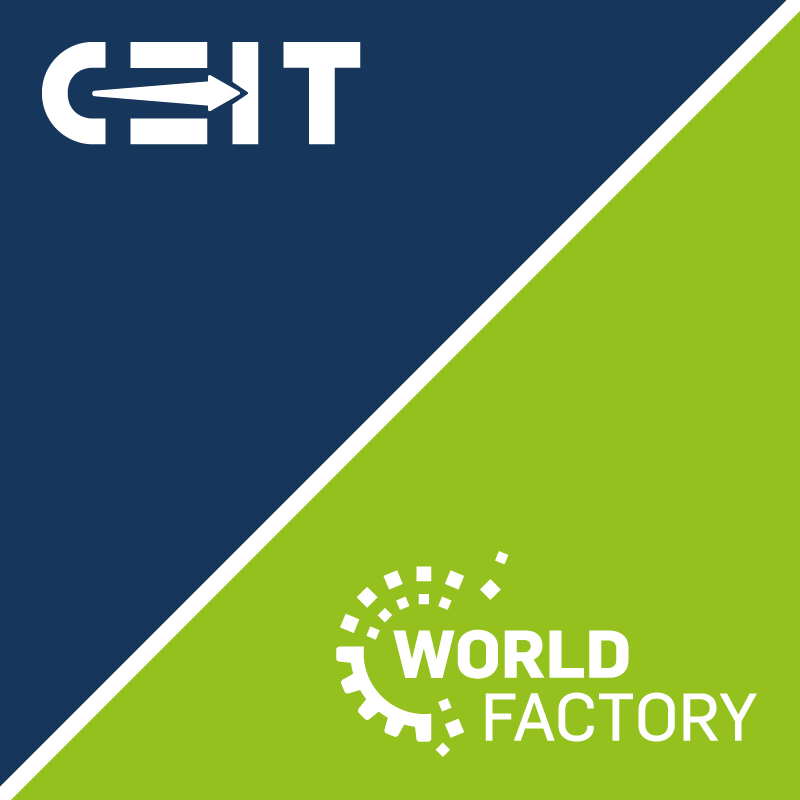Welcome to CEIT
Center for Entrepreneurship, Innovation and Transformation
About Us
In times of economic upheaval, it is important to develop new business fields through innovation, business creation and start-ups, but also to ensure economic sustainability of traditionally successful companies and institutions. Overall economic challenges such as crisis management, transformation of the energy system, digital transformation or the increasing number of new businesses are regionally reflected in many different ways.


The Faculty of Management and Economics of the Ruhr-Universität Bochum established the CEIT to develop future perspectives in a regionally networked manner and to unite those who are interested in the topics of entrepreneurship, innovation and transformation. The CEIT, with its combination of management and economic expertise, intends to serve as a connecting element and catalyst for economically profound projects in research and practice.
Current News
Our working areas
The CEIT’s fields of activity are defined by the following functions:
01
Basic function
The CEIT conducts research in the fields of entrepreneurship, innovation and transformation and initiates projects in cooperation with other members of the faculty.
02
Initiator function
The CEIT makes it easier for students, graduates and researchers to take the step into founding a company.
03
Transfer function
04
Transformation function
The CEIT accompanies entrepreneurs and companies throughout the entire life cycle in order to increase resilience of different operational functions (sales, financing, risk management, etc.).
05
Catalytic function
The CEIT defines itself as a catalyst for the pooling of competences for research-focused innovative projects and initiates inter- and transdisciplinary projects at the RUB and within the University Alliance Ruhr. Furthermore, it supports the identification of projects with a potential for commercialisation and spin-offs.
06
Guide function
The CEIT informs people inside and outside the university about activities at the RUB in the areas of entrepreneurship, innovation and transformation and, if necessary, refers them to other contact persons. For this purpose, a signpost has been set up on the website.
Professors of CEIT
- Business model innovations
- Entrepreneurial Opportunity Recognition
- Technology dynamics and transformation
- Data Science in Economics
- Machine Learning, Artificial Intelligence
- Natural Language Processing
- Programming in Python, R, etc.
- Digital Transformation and New Technologies
Ausführliches Profil von Herrn Pöppelbuß auf den Seiten des Lehrstuhls Industrial Sales and Service Engineering.
Er studierte Volkswirtschaftslehre an der Universität Göttingen und wurde an der Universität Zürich promoviert. Seit 2000 ist er am RWI – Leibniz-Institut für Wirtschaftsforschung tätig. In seinen Forschungsarbeiten analysiert er empirische und wirtschaftspolitisch relevante Fragestellungen aus den Bereichen der Konjunkturanalyse und -prognose, der mittelfristigen Wirtschaftsentwicklung sowie des demografischen Wandels.
Vita: Studium der BWL und Wirtschaftspädagogik an der Georg-August-Universität Göttingen und der FU Berlin mit Abschluss Dipl.-Kffr. (1992) und Dipl.-Hdl. (1994); Promotion (1998) und Habilitation (2004) jeweils an der Fakultät für Wirtschaftswissenschaft an der TU Chemnitz mit Forschungsaufenthalten in Washington D.C. und am MIT Boston (1996) sowie JAIST in Japan (2000). 2004 Lehrstuhl für Allgemeine BWL, insbes. Personalmanagement und Organisation an der wissenschaftlichen Hochschule Lahr (WHL); seit Ende 2005 Lehrstuhlinhaberin an der RUB. Zwischen 2008 und 2015 auch Prorektorin für Lehre und in 2018 Gastprofessorin an der University of Colorado, Boulder. Ausgehend von konkreten Veränderungen der Arbeitswelt beschäftigt sich Uta Wilken in Ihrer Forschung mit der Frage, was Organisationen in volatilen Umwelten adaptionsfähig macht und mit welchen Kompetenzen Individuen diese Veränderungsprozesse bewältigen und selbstbestimmt gestalten können. Dabei steht der digitale Wandel im Zentrum des Interesses. Ein besonderer Schwerpunkt liegt auf der Integration von künstlicher Intelligenz (KI) in Arbeitsprozesse.
Team
Students & Entrepreneurs
Certificate in Entrepreneurship
Micro Credential:
Innovation & Entrepreneurship
Matchmaking
For Students
Teaching Offers
For Entrepreneurs
Entrepreneurship
Educational offers on the topic
More Info
More Info
More Info
More Info
Researchers & Research Institutions
Research projects
Publications
Kamrath, C., Wensing, J., De Steur, H., & Bröring, S. (2025). Explaining the Intention to Consume 3D-Printed Food via the Food Technology Acceptance Model and Trust Dynamics. International Journal of Consumer Studies, 49, e70081.
Baum, C.M., Sick, N. & Bröring, S. (2025). Drivers for the emergence of interdisciplinary knowledge areas: An actor-level perspective on building legitimacy for the case of synthetic life sciences. Technovation, 141, 103173.
Does Gender matter for Export Behavior? Evidence for German Companies, forthcoming in International Journal of Gender and Entrepreneurship.
Krenz, A. and Strulik, H. (2025). Automation and the Fall and Rise of the Servant Economy, European Economic Review, vol. 172, 104926.
Ohlert, S., Laibach, N., Harms, R., & Bröring, S. (2025). Opportunity recognition in the tension field of knowledge and learning: The case of converging industries. Journal of Business Research, 186, 114993.
Baaden, P., Rennings, M., John, M., & Bröring, S. (2024). On the emergence of interdisciplinary scientific fields: (how) does it relate to science convergence?. Research Policy, 53(6), 105026.
Ecosystem & Companies
Worldfactory Start-Up Center
Partnernetzwerk
Institutes
ISEB
Centre for Entrepreneurship, Innovation and Transformation (CEIT)
Prof. Dr. Matthias Weiss
Suttner-Nobel Allee 4
(ehm. Opelring 1)
44803 Bochum
Phone: 0234 32-26690
E-Mail: ceit@rub.de
Further thematic fields of competence
FAACT
Finance, Accounting, Auditing, Controlling, Taxation
CISE
Centre for International and Spatial Economics
CURE
Centre for Environmental Change, Resources and Energy
SMD
Sales Management Department



